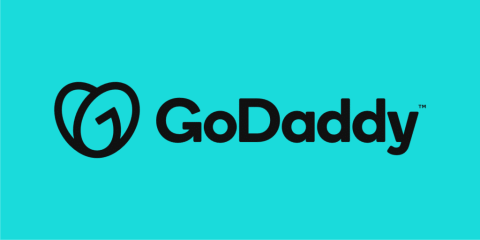Godaddy (NYSE: GDDY) Stock Price Jumps after Quarterly Results; Morningstar Research Suggests $135 Fair Price
Morningstar has issued a sell rating for GoDaddy Inc. (NYSE: GDDY), setting a fair value estimate of USD 135 per share. Despite GoDaddy's strong brand presence and recent growth initiatives in digital commerce, the current trading price of USD 166.80 reflects an overvaluation, with the stock trading at a premium. Investors are advised to consider the substantial market risks, especially given GoDaddy's focus on commoditized offerings and lack of a competitive moat.
Valuation and Target Price for Investors
1. Price Targets and Current Market Levels
Fair Value Estimate: Morningstar places GoDaddy’s fair value at USD 135 per share, a considerable discount from its current trading price of USD 166.80.
Price Level Recommendations: Investors may consider reducing their exposure at or above current levels, as the stock is trading at a 24% premium to its intrinsic value.
2. Support and Resistance Levels
Support Level: USD 130-135 per share, with the fair value estimated here aligning with potential market recalibrations.
Resistance Level: USD 170 per share, reflecting recent market highs influenced by favorable earnings reports and optimistic guidance.
Operational Performance and Strategic Drivers
1. Revenue Growth and Profitability
Revenue Gains: GoDaddy reported 7% year-over-year revenue growth in the third quarter, primarily driven by increased bookings in website design and digital commerce solutions.
Profit Margins: Adjusted EBITDA margin reached 31.9%, reflecting strong cost optimization efforts, including increased adoption of AI-driven customer support, and bundling of higher-margin products.
2. Product Diversification and Digital Commerce Expansion
Omnicommerce Expansion: Through its 2021 acquisition of Poynt, GoDaddy has increased its service offerings to include payment processing, setting up a competitive position against platforms like Shopify and Block.
Customer Retention and Bundling: With customer retention at 85%, the company benefits from modest cross-sell opportunities within its client base, though it faces challenges in upscaling existing clients to higher-margin offerings.
Competitive Landscape and Market Risks
1. Absence of Economic Moat
Commoditization of Domain Registration: GoDaddy’s core offerings are highly commoditized, placing it in a price-sensitive market without significant pricing power.
Switching Costs and Client Retention: While retention rates are high, GoDaddy's client base predominantly consists of micro and small businesses, which face high churn rates due to economic sensitivity.
2. Intense Market Competition
Competitive Pressures: GoDaddy competes directly with VeriSign and Shopify in various domains, facing pricing pressures due to similar service offerings in website hosting, security, and online payments.
Customer Inertia: Limited success is expected in moving existing clients to new offerings due to entrenched brand loyalty and competitive product pricing from peers.
Investment Considerations and Outlook
1. ESG and Data Privacy Risks
Data Security Concerns: GoDaddy handles substantial customer data across domains and payment processing services, placing it at medium ESG risk due to potential data breaches and regulatory scrutiny.
Risk Management: GoDaddy has implemented GDPR compliance and increased board oversight on ESG, though risks remain due to evolving cybersecurity threats.
2. Capital Allocation and Dividend Policies
Capital Strategy: Rated ‘Standard’ by Morningstar, GoDaddy's capital allocation focuses on strategic acquisitions and share buybacks. While no dividends are issued, continued share repurchases support shareholder value.
Debt Levels: GoDaddy has a high debt-to-equity ratio, which may limit its flexibility in a volatile economic climate.
